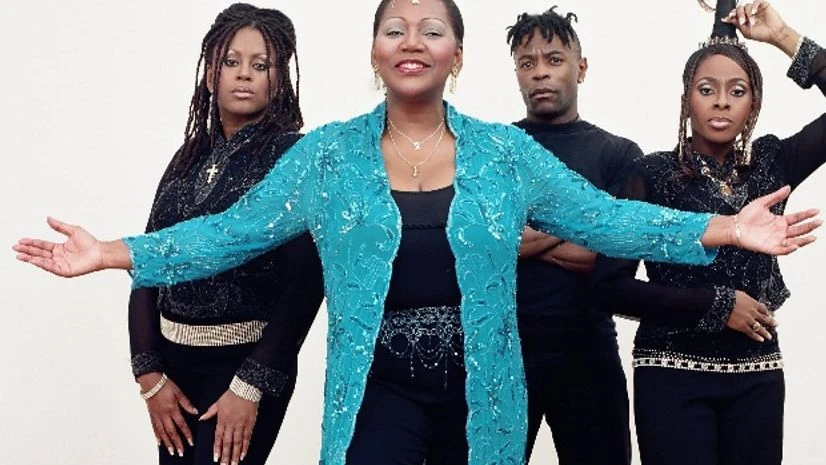Few groups spell disco the way Boney M does. The Germany-based music group’s rise and decline corresponded almost exactly with that of the genre’s popularity, which spanned from the mid-1970s to 1980. Its simplistic snappy numbers, including the much-loved Daddy Cool, dominated world music for four years before being eclipsed by punk rock. While other disco groups attempted to cross over, Boney M and a small set of fans stood staunchly by dance music. Liz Mitchell, one of the original members of the band, will tour Mumbai with back-up singers this weekend to play old disco hits for those supporters.
“People are still so loyal to the music,” says Mitchell with some surprise. “I am also impressed with the young people’s knowledge of Boney M. I don’t know if they got it from their parents or on the internet.” Mitchell is one of the two authentic voices in Boney M, where the other members used to merely lip-sync. In its prime, the group had a heavy influence on Bollywood. The Mumbai concert will include famous tracks such as Rivers of Babylon, Sunny and of course, Daddy Cool. Speaking over the telephone a day before the concert, Mitchell who has been touring countries including Germany, Iceland and Norway, says she hopes to see more people her age come out for the show here.
When it was formed in 1976, Boney M was only a set of exotic-looking singers and dancers put together to take German producer Frank Farian’s music to the stage and television. Farian wrote a song, ‘Baby Do You Wanna Bump’, but was vexed by the idea of touring with it. Instead, Bobby Farrell, a dancer from Aruba, was roped in to mouth the words in between vigorous dance moves. Mitchell and Marcia Barrett sang and performed the female voices, while a fourth member, Maizie Williams, just danced. Years later, Farian would repeat this trick by creating Milli Vanilli, a pop band comprising two lip-syncing male dancers.
More From This Section
Behind the apparent glitter, there were tensions. The essence and spiritual power of Boney M faded after 1980, losing out to politics and a change of energy in music at the time. Farrell left the group in 1981 after conflicts with the producer. “That was a trying time for us because people knew Bobby and loved him for his dancing technique, style and presence.” Record companies had also been fighting to sign the group, causing Farian to grow weary of the group he created. By the 1990s, Boney M depended mainly on remixes or on other artists sampling its music for their tracks.
But Mitchell never stopped performing. She did a few remix albums, encouraged by producer Farian, and later launched a solo career with a new band. This time, it was called Boney M featuring Liz Mitchell. “The original voice.”
Boney M featuring Liz Mitchell will perform in Phoenix Market City, Kurla on Saturday, November 21

)
